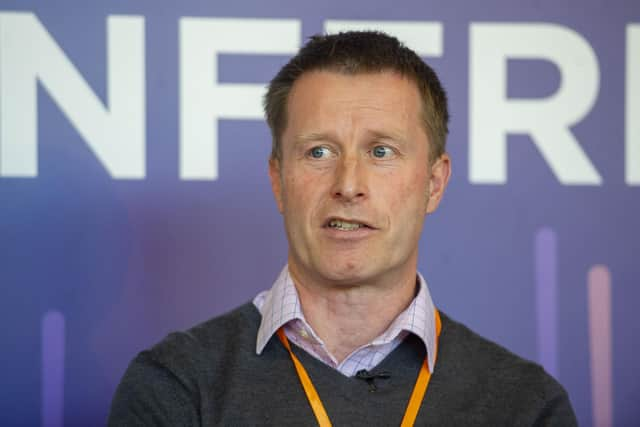Conference report: Good collaboration is key
It is clear from last week’s Data for Diversity conference that tackling these economic, environmental and economic challenges requires collaboration between people, ideas and evidence.
And, while data has a huge role to play in unlocking our potential to having a more equal and just society, we need to ensure the data collected and used to inform policies, captures all manners of people and behaviour so no-one is left behind.
Advertisement
Hide AdAdvertisement
Hide AdAll these themes were picked up in the Data for more Diverse and Inclusive Health Outcomes session. I, along with my fellow panelists, spoke about the perils, pitfalls and potential of working with data.


At Research Data Scotland (RDS) our mission is to promote and advance health and social wellbeing by enabling access to public sector data about people, places and businesses.
Scotland already has excellent public sector data, which is stored in lots of individual systems, across many different organisations. We want to make that data accessible and allow users – whether academic researchers or data analysts from charity, government or business – to use it to make linkages and connect the dots to improve policymaking.
At the moment, much of this data – from sources such as the census, school qualifications, hospital admissions – isn’t in a format that makes access or integration of data easy. If a researcher wants to connect data from different organisations, they have to make requests to each of those bodies. This means accessing data can take too long and the potential of that research is unfulfilled or significantly delayed.
Data provides us with the evidence to help understand the root causes of problems, the insights to formulate strategies to address them, and the evidence to learn whether current or proposed policy approaches are effective. The next stage for RDS is to work with our partners and simplify the process, reducing the burden of administration on those holding the data and making it easier for users who want to access and analyse the data.
Our plan, which we are now starting to deliver, is to simplify the system by providing platforms, policies and approaches that give confidence to data controllers, researchers, and the public, and reduce cost and friction where possible.
Our focus will be on improving the speed and quality of the research data access service, all the while maintaining scrutiny of public value for all uses of data.
At the conference, I spoke about one of the demonstrator projects that will help bring to life the potential RDS has to offer to users. For example, we have brought together a range of data on protected characteristics and are working with the Scottish Legal Aid Board to help them better understand how fair access to and outcomes from their services are.
Advertisement
Hide AdAdvertisement
Hide AdProjects like these will hopefully open up the possibilities of how the data could be used to support innovative decision-making.
A key component will be securing public trust – so that the public understand that their data is safe with us.
As part of our strategy, we are committing to engaging with the public and working with others in this space by supporting dialogue activity that’s already underway.
To gain public support, we will need to continue to actively engage and listen to what the public has to say on how their data is accessed, managed and stored, and what type of data they are comfortable to share for wider societal benefit.
I’m passionate about my organisation’s vision to create the conditions for data-driven innovation to happen systematically across Scotland, to enable collaborations that save time, money and lives.
